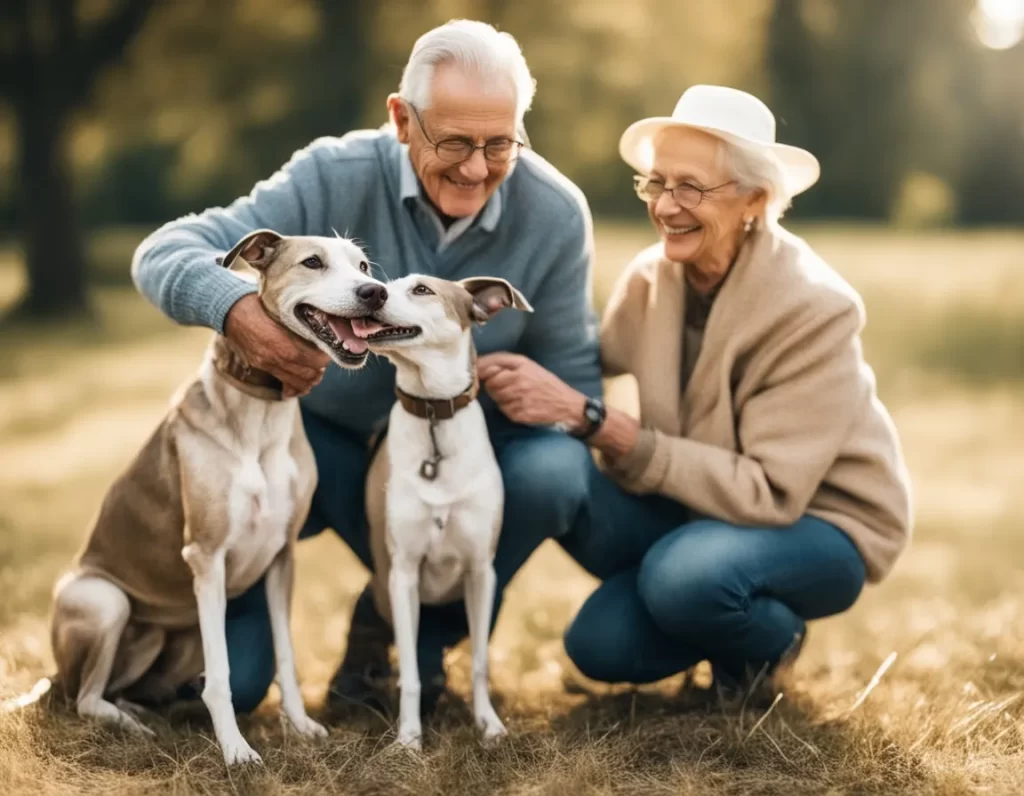Table of Contents
TogglePerhaps you’re in search of a new “baby” now that your own children have flown the nest, or you simply crave the warmth and love of a four-legged friend. Whatever the reason, adopting a dog in your golden years is a decision to be thoughtfully considered. However, which breeds make the best house dogs for seniors?
While certain breeds may have been ideal when you were younger, your needs and lifestyle have likely changed. That’s why it’s crucial to choose a breed that aligns with your current abilities and preferences.
Factors to Consider When Choosing a Dog Breed for Seniors
As you consider adopting a furry friend in your golden years, it’s essential to take several factors into account to ensure a harmonious companionship.
1. Breed size
Large dog breeds can pose challenges for seniors due to their size, weight, and strength. These dogs may inadvertently trip elderly owners during walks, potentially leading to injuries. Additionally, caring for a sick or injured large dog can be physically demanding for seniors, as they may struggle to lift or transport the dog for medical care. Therefore, considering a smaller or more manageable-sized breed can alleviate these concerns and ensure a safer and more comfortable companionship for seniors.
2. Health predispositions
One crucial aspect is the health predispositions of different dog breeds. Some breeds are more prone to certain diseases, which could increase the financial burden on the elderly and require extra time and energy for caregiving. Additionally, dealing with a pet’s illness can also induce anxiety in seniors.
3. Shedding
Seniors may prefer dog breeds that shed minimally to reduce allergens and maintain a cleaner living environment. Breeds with low shedding are ideal choices for seniors who want to minimize the amount of fur in their homes. Low-shedding breeds typically require less frequent grooming and are easier to manage for individuals with mobility limitations.
4. Coat Maintenance
Breeds with shorter or non-shedding coats are easier to groom and maintain, making them suitable companions for seniors who prefer low-maintenance pets. On the other hand, breeds with longer or thicker coats may require more frequent grooming sessions to prevent matting and tangles, which could be challenging for seniors with limited dexterity or mobility.
5. Noise level
Another consideration is the noise level of various dog breeds. Breeds known for being noisy may disrupt the quiet rest and relaxation that seniors often crave. Therefore, opting for quieter breeds can contribute to a more serene living environment.
6. Obedience level
The obedience level of a dog is also vital, especially for elderly owners. Breeds with poor obedience may be more challenging to control, posing safety risks both indoors and outdoors. This lack of control can hinder the ability of seniors to fully enjoy their companionship and may lead to stressful situations.
7. Exercise requirements
Exercise requirements are another crucial factor to consider. Seniors may not have the physical stamina to meet the exercise needs of high-energy dog breeds. Therefore, selecting breeds with moderate or low exercise requirements is essential to ensure that the elderly can comfortably meet their pet’s needs without overexerting themselves.
When selecting a dog breed for seniors, it’s essential to weigh various factors to ensure a fulfilling companionship that enhances both the senior’s and the furry friend’s quality of life. Opting for breeds with smaller body sizes, fewer health issues, quieter tendencies, higher obedience levels, and lower exercise needs can significantly contribute to a safer and more manageable companionship for elderly owners.
By taking these considerations into account, seniors can find the perfect furry companion to bring joy and companionship without overwhelming physical demands or health concerns.
In this blog post, we will list some suitable dog breeds for you, taking into consideration factors listed above. By exploring these characteristics of different breeds, we aim to provide valuable insights that will help you make an informed decision and find the perfect furry companion to enhance your golden years. Let’s dive into the world of canine companionship and discover the ideal breed that will bring joy and comfort to your life as a senior.
1. American Hairless Terrier
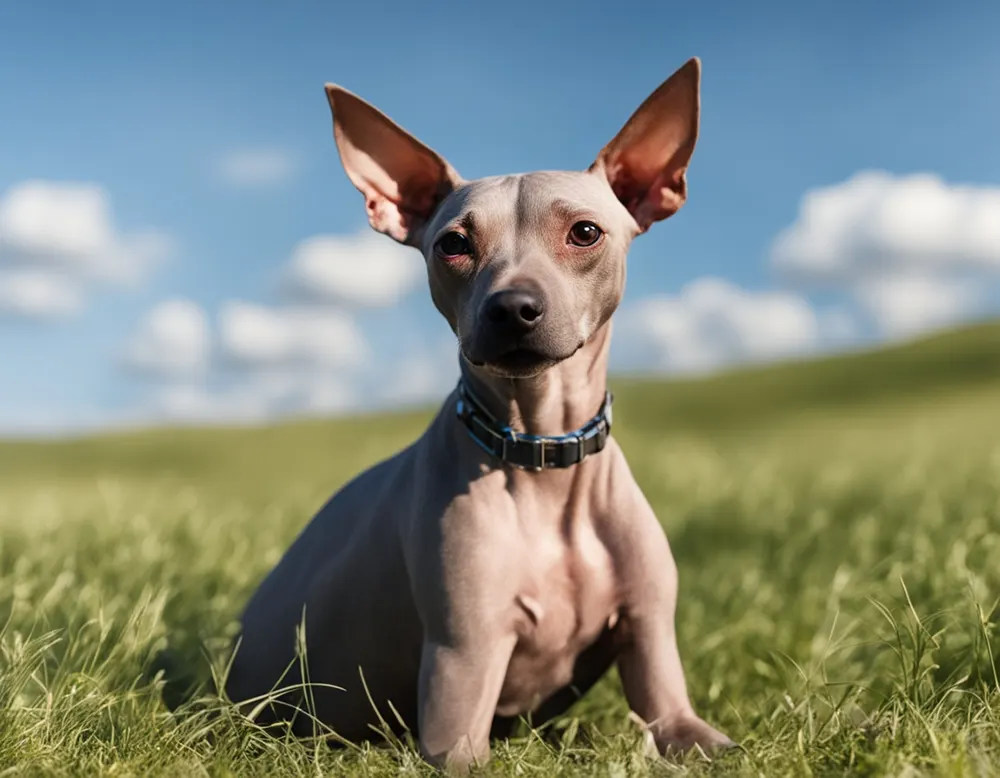
The American Hairless Terrier is a unique and charming breed that stands out for its lack of fur, making it an ideal companion for seniors seeking a low-maintenance pet. This small to medium-sized breed typically weighs between 12 to 16 pounds and stands around 12 to 16 inches tall at the shoulder. Their hairless coat sets them apart from other terrier breeds, offering a hypoallergenic option for individuals with allergies or those who prefer a clean home environment.
In terms of health predispositions, the American Hairless Terrier is generally a healthy breed, but like all dogs, they may be prone to certain health issues such as skin allergies, dental problems, and sunburn. Due to their lack of fur, they require protection from harsh sunlight to prevent skin damage and should be provided with appropriate sunscreen when outdoors.
One of the main benefits of the American Hairless Terrier for seniors is their minimal shedding and low maintenance coat. Without fur to shed, they are easier to groom and keep clean, requiring only occasional bathing and skin moisturization to maintain healthy skin.
American Hairless Terriers are known for their moderate noise levels, making them suitable for apartment living or homes where noise needs to be kept to a minimum. They are alert and may bark to alert their owners of any potential intruders or unfamiliar sounds but are not excessive barkers.
In terms of obedience, American Hairless Terriers are intelligent and trainable, though they may have a stubborn streak at times. With consistent and positive reinforcement-based training, they can excel in obedience tasks and enjoy participating in activities that engage their minds.
Exercise requirements for American Hairless Terriers are moderate, requiring daily walks and play sessions to keep them mentally and physically stimulated. They enjoy activities such as walking, playing fetch, and exploring their surroundings, making them suitable companions for seniors who enjoy outdoor activities.
In summary, the American Hairless Terrier is a friendly and low-maintenance breed with minimal shedding, moderate noise levels, and moderate exercise needs, making them well-suited for seniors looking for a loyal and easy-to-care-for companion. With their affectionate nature and unique appearance, American Hairless Terriers make wonderful companions for individuals seeking a furry friend without the hassle of fur maintenance.
Total Rating Scores of
American Hairless Terrier
25
Breed Size
Health
Shedding
Coat maintenance
Quietness
Obedience
Exercise Requirements
PROS
- Perfectly balanced size
- No shedding
- Moderate noise levels
- High obedience
CONS
- Prone to sunburn
2. Coton de Tulear
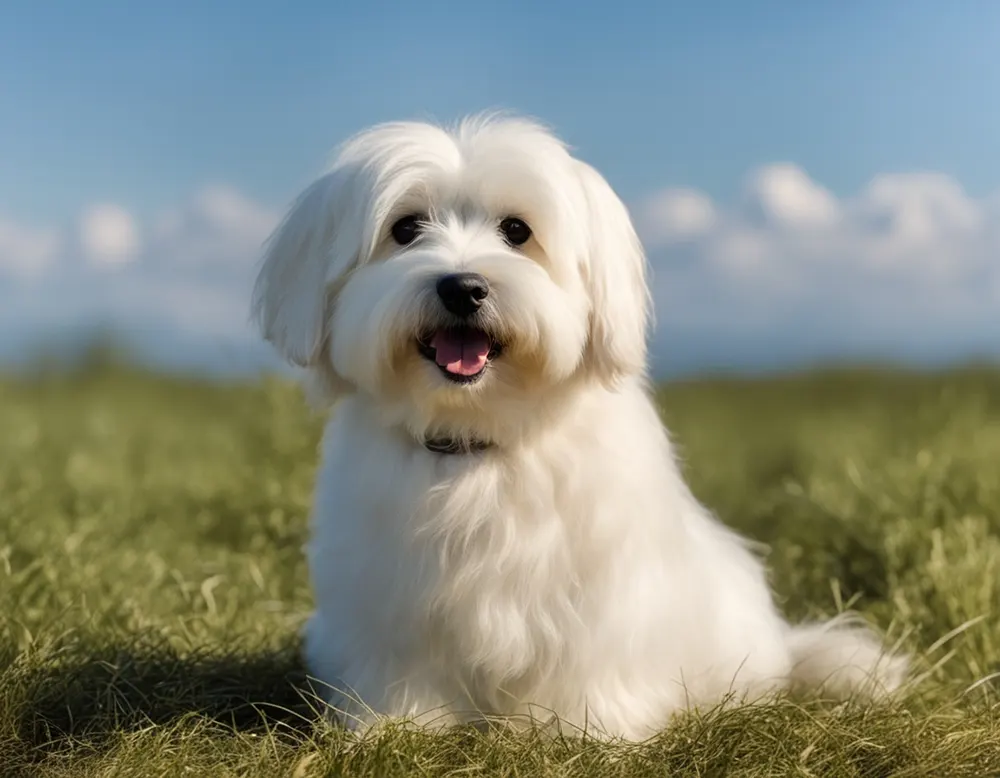
The Coton de Tulear, a delightful and affectionate breed, is well-suited for seniors seeking a loving and low-maintenance companion. This small-sized breed typically weighs between 9 to 15 pounds and stands around 10 to 12 inches tall at the shoulder. With their fluffy white coats and expressive eyes, Cotons exude charm and warmth, making them wonderful companions for seniors looking for a loyal and loving pet.
In terms of health predispositions, the Coton de Tulear is generally a healthy breed, but like all dogs, they may be prone to certain health issues such as hip dysplasia, luxating patellas, and dental problems. Regular veterinary check-ups and proper dental care can help mitigate these concerns and ensure the Coton maintains optimal health throughout its life.
Cotons have a soft, cotton-like coat that requires regular grooming to prevent matting and tangles. While they do shed minimal, their coat maintenance is relatively low compared to other breeds, making them suitable for seniors who prefer a low-maintenance pet.
Coton de Tulears are known for their minimal noise levels, making them suitable for apartment living or homes where noise needs to be kept to a minimum. They are alert and may bark to alert their owners of any potential intruders or unfamiliar sounds but are not excessive barkers.
In terms of obedience, Cotons are intelligent and eager to please, making them relatively easy to train with positive reinforcement methods. They respond well to praise and enjoy participating in training sessions with their owners.
Exercise requirements for Coton de Tulears are moderate, requiring daily walks and play sessions to keep them mentally and physically stimulated. They enjoy activities such as walking, playing fetch, and exploring their surroundings, making them suitable companions for seniors who enjoy outdoor activities.
In summary, the Coton de Tulear is a friendly and low-maintenance breed with minimal shedding, moderate noise levels, and moderate exercise needs, making them well-suited for seniors seeking a loyal and easy-to-care-for companion. With their affectionate nature and fluffy coat, Cotons make wonderful companions for individuals looking for a furry friend to share their golden years with.
Total Rating Scores of
Coton de Tulear
22
Breed Size
Health
Shedding
Coat maintenance
Quietness
Obedience
Exercise Requirements
PROS
- Perfectly balanced size
- Minimal shedding
- Minimal barking level
- High obedience
CONS
- Daily grooming
3. Whippet
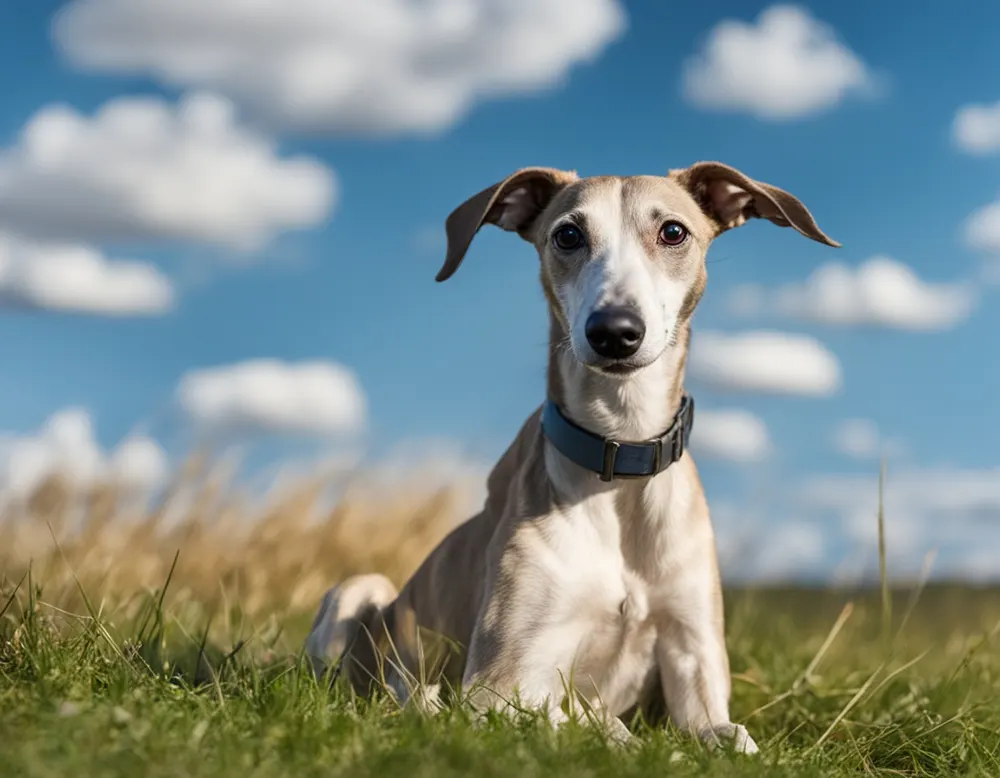
The Whippet, a graceful and gentle breed, is a wonderful choice for seniors seeking a loyal and affectionate companion. This medium-sized breed typically weighs between 25 to 40 pounds and stands around 18 to 22 inches tall at the shoulder. With their sleek and elegant appearance, Whippets exude a sense of sophistication and charm, making them excellent companions for seniors looking for a devoted pet.
In terms of health predispositions, Whippets are generally a healthy breed, but like all dogs, they may be prone to certain health issues such as hip dysplasia, heart murmurs, and eye problems. Regular veterinary check-ups and proper care can help mitigate these concerns and ensure the Whippet maintains optimal health throughout its life.
Whippets have a short and smooth coat that requires minimal grooming, making them easy to care for and suitable for seniors who prefer a low-maintenance pet. While they do shed, their coat maintenance is relatively minimal compared to other breeds, requiring only occasional brushing to remove loose hair.
Whippets are known for their minimal noise levels, making them suitable for apartment living or homes where noise needs to be kept to a minimum. They are generally quiet and well-behaved indoors, making them excellent companions for seniors who prefer a peaceful living environment.
In terms of obedience, Whippets are intelligent and responsive, making them relatively easy to train with positive reinforcement methods. They enjoy learning new tricks and participating in training sessions with their owners.
Exercise requirements for Whippets are moderate, requiring daily walks and occasional bursts of activity to keep them mentally and physically stimulated. They enjoy activities such as running, chasing toys, and participating in dog sports like lure coursing, making them suitable companions for active seniors who enjoy outdoor activities.
In summary, the Whippet is a friendly and low-maintenance breed with moderate shedding, moderate noise levels, and moderate exercise needs, making them well-suited for seniors seeking a loyal and easy-to-care-for companion. With their affectionate nature and sleek appearance, Whippets make wonderful companions for individuals looking for a loving pet to share their golden years with.
Total Rating Scores of
Whippet
22
Breed Size
Health
Shedding
Coat maintenance
Quietness
Obedience
Exercise Requirements
PROS
- Minimal shedding
- Monthly coat maintenance
- Minimal barking level
CONS
- Weighs 25-40 pounds
- Higher exercise requirements
4. Cavalier King Charles Spaniel
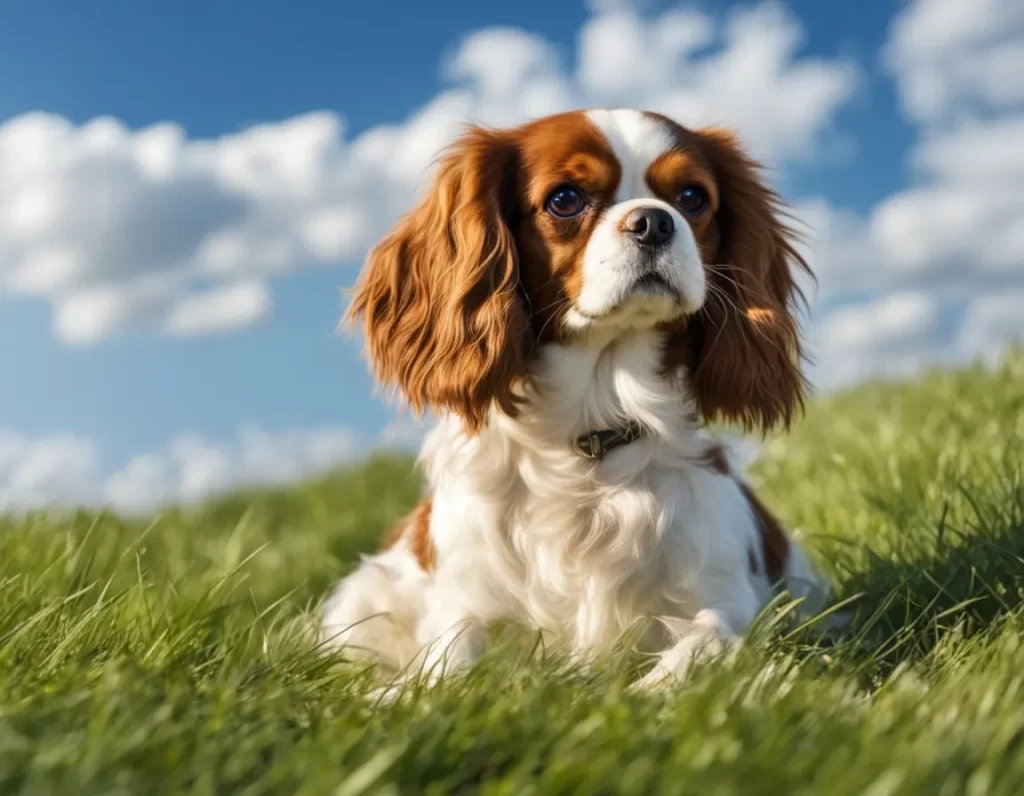
The Cavalier King Charles Spaniel, a beloved and affectionate breed, is an excellent choice for seniors seeking a loyal and gentle companion. This small to medium-sized breed typically weighs between 13 to 18 pounds and stands around 12 to 13 inches tall at the shoulder. With their elegant appearance and expressive eyes, Cavalier King Charles Spaniels exude charm and warmth, making them wonderful companions for seniors looking for a devoted pet.
In terms of health predispositions, Cavalier King Charles Spaniels are generally a healthy breed, but like all dogs, they may be prone to certain health issues such as mitral valve disease, syringomyelia, and hip dysplasia. Regular veterinary check-ups and proper care can help mitigate these concerns and ensure the Cavalier King Charles Spaniel maintains optimal health throughout its life.
Cavalier King Charles Spaniels have a silky coat that requires regular grooming to prevent matting and tangles. While they do shed, their coat maintenance is relatively moderate compared to other breeds, requiring regular brushing and occasional grooming sessions to keep their coat in good condition.
Known for their moderate noise levels, Cavalier King Charles Spaniels are suitable for apartment living or homes where noise needs to be kept to a minimum. They are generally quiet indoors but may bark to alert their owners of any potential intruders or unfamiliar sounds.
In terms of obedience, Cavalier King Charles Spaniels are intelligent and eager to please, making them relatively easy to train with positive reinforcement methods. They enjoy learning new tricks and participating in training sessions with their owners.
Exercise requirements for Cavalier King Charles Spaniels are moderate, requiring daily walks and occasional play sessions to keep them mentally and physically stimulated. They enjoy activities such as walking, playing fetch, and exploring their surroundings, making them suitable companions for seniors who enjoy outdoor activities.
In summary, the Cavalier King Charles Spaniel is a friendly and affectionate breed with moderate shedding, moderate noise levels, and moderate exercise needs, making them well-suited for seniors seeking a loyal and gentle companion. With their charming personality and elegant appearance, Cavalier King Charles Spaniels make wonderful companions for seniors looking for a devoted pet to share their golden years with.
Total Rating Scores of
Cavalier King Charles Spaniel
22
Breed Size
Health
Shedding
Coat maintenance
Quietness
Obedience
Exercise Requirements
PROS
- Perfectly balanced size
- Minimal shedding
- Biweekly coat maintenance
- High obedience
CONS
- Prone to syringomyelia
5. Glen of Imaal Terrier
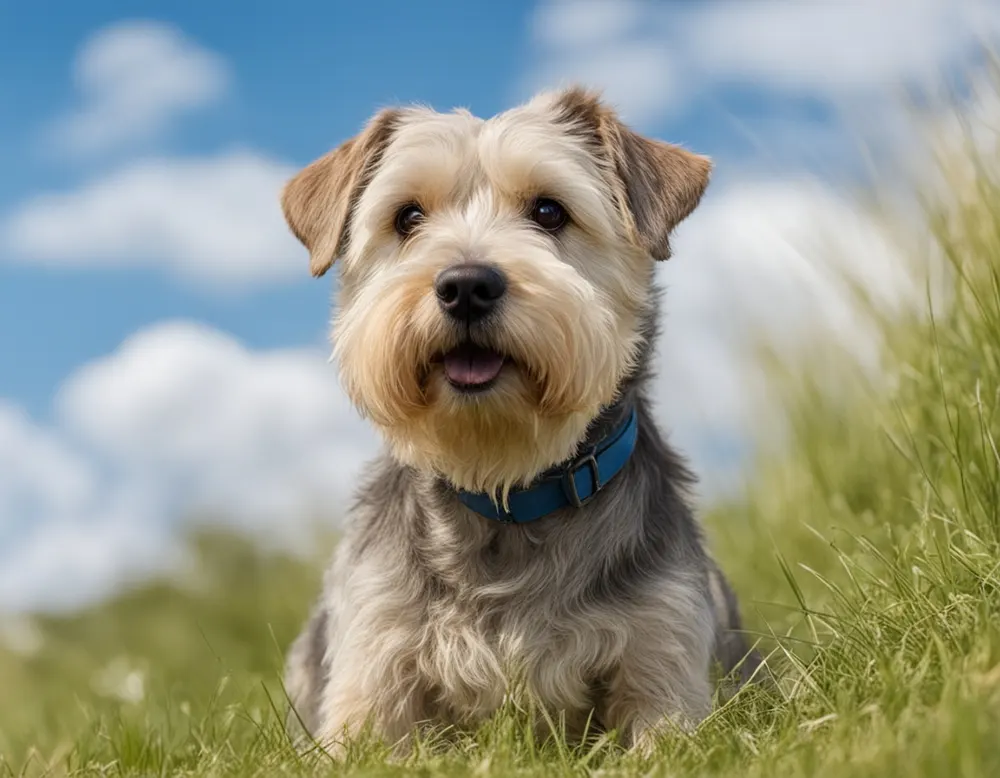
The Glen of Imaal Terrier, a charming and rugged breed, can be a suitable companion for seniors seeking a loyal and spirited pet. This medium-sized breed typically weighs between 32 to 40 pounds and stands around 12.5 to 14 inches tall at the shoulder. With their compact build and wiry coat, Glen of Imaal Terriers exude a sense of strength and resilience, making them excellent companions for seniors looking for a sturdy and devoted pet.
In terms of health predispositions, Glen of Imaal Terriers are generally a healthy breed, but like all dogs, they may be prone to certain health issues such as hip dysplasia, progressive retinal atrophy, and skin allergies. Regular veterinary check-ups and proper care can help mitigate these concerns and ensure the Glen of Imaal Terrier maintains optimal health throughout its life.
Glen of Imaal Terriers have a double-layered coat that sheds minimally, making them relatively low-maintenance in terms of grooming. Occasional brushing and grooming sessions are sufficient to keep their coat in good condition and prevent matting.
Known for their moderate noise levels, Glen of Imaal Terriers are suitable for apartment living or homes where noise needs to be kept to a minimum. They are generally quiet indoors but may bark to alert their owners of any potential intruders or unfamiliar sounds.
In terms of obedience, Glen of Imaal Terriers are intelligent and independent-minded, which can sometimes translate to a stubborn streak during training sessions. With consistent and positive reinforcement-based training, they can learn obedience commands and thrive in structured environments.
Exercise requirements for Glen of Imaal Terriers are moderate, requiring daily walks and occasional play sessions to keep them mentally and physically stimulated. They enjoy activities such as walking, hiking, and exploring their surroundings, making them suitable companions for seniors who enjoy outdoor activities.
In summary, the Glen of Imaal Terrier is a friendly and resilient breed with minimal shedding, moderate noise levels, and moderate exercise needs, making them potentially suitable for seniors seeking a loyal and sturdy companion. With their affectionate nature and rugged appearance, Glen of Imaal Terriers can make wonderful companions for seniors looking for a devoted pet to share their golden years with.
Total Rating Scores of
Glen of Imaal Terrier
20
Breed Size
Health
Shedding
Coat maintenance
Quietness
Obedience
Exercise Requirements
PROS
- Minimal shedding
- Moderate barking level
CONS
- Weighs 32-40 pounds
6. Bichon Frise
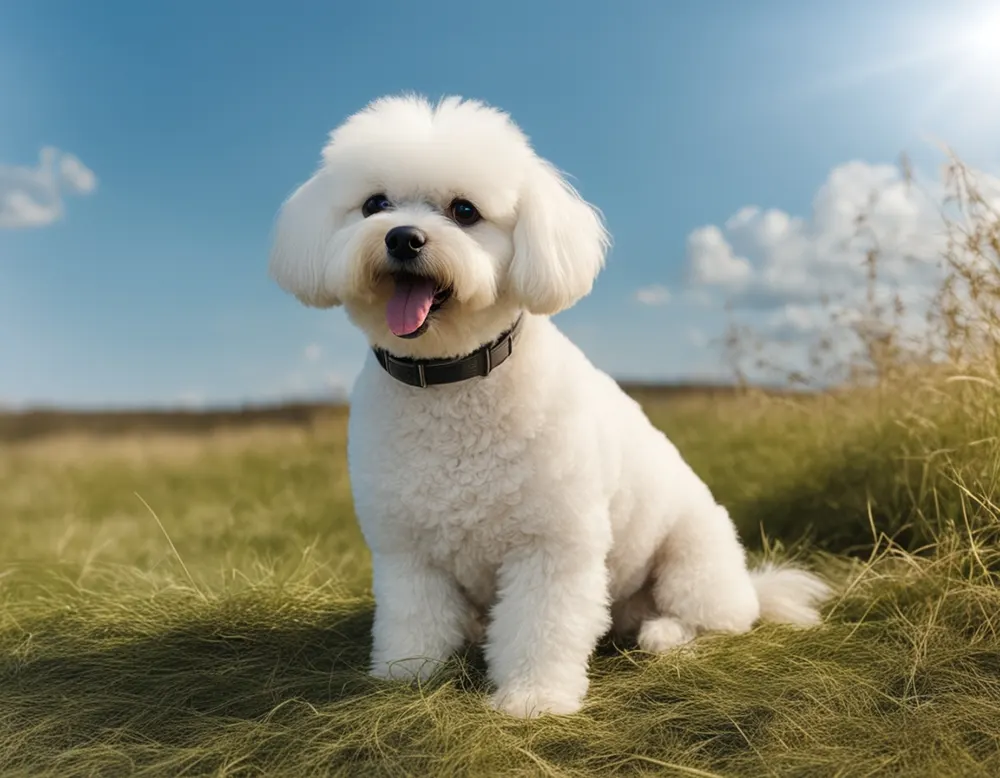
The Bichon Frise, a cheerful and affectionate breed, is an ideal choice for seniors seeking a loyal and playful companion. This small-sized breed typically weighs between 10 to 18 pounds and stands around 9 to 12 inches tall at the shoulder. With their fluffy white coat and merry disposition, Bichon Frises exude charm and warmth, making them wonderful companions for seniors looking for a devoted pet.
In terms of health predispositions, Bichon Frises are generally a healthy breed, but like all dogs, they may be prone to certain health issues such as allergies, dental problems, and patellar luxation. Regular veterinary check-ups and proper dental care can help mitigate these concerns and ensure the Bichon Frise maintains optimal health throughout its life.
Bichon Frises have a curly, non-shedding coat that requires regular grooming to prevent matting and tangles. Their coat maintenance is relatively high compared to other breeds, requiring frequent brushing and grooming sessions to keep their coat in good condition.
Known for their moderate noise levels, Bichon Frises are suitable for apartment living or homes where noise needs to be kept to a minimum. They are generally quiet indoors but may bark to alert their owners of any potential intruders or unfamiliar sounds.
In terms of obedience, Bichon Frises are intelligent and eager to please, making them relatively easy to train with positive reinforcement methods. They enjoy learning new tricks and participating in training sessions with their owners.
Exercise requirements for Bichon Frises are moderate, requiring daily walks and occasional play sessions to keep them mentally and physically stimulated. They enjoy activities such as walking, playing indoors, and exploring their surroundings, making them suitable companions for seniors who enjoy a moderate level of activity.
In summary, the Bichon Frise is a friendly and affectionate breed with minimal shedding, moderate noise levels, and moderate exercise needs, making them well-suited for seniors seeking a loyal and playful companion. With their charming personality and fluffy coat, Bichon Frises make wonderful companions for seniors looking for a devoted pet to share their golden years with.
Total Rating Scores of
Bichon Frise
20
Breed Size
Health
Shedding
Coat maintenance
Quietness
Obedience
Exercise Requirements
PROS
- Perfectly balanced size
- Almost no shedding
- High obedience
CONS
- Daily grooming
- Sometimes vocal
7. Maltese
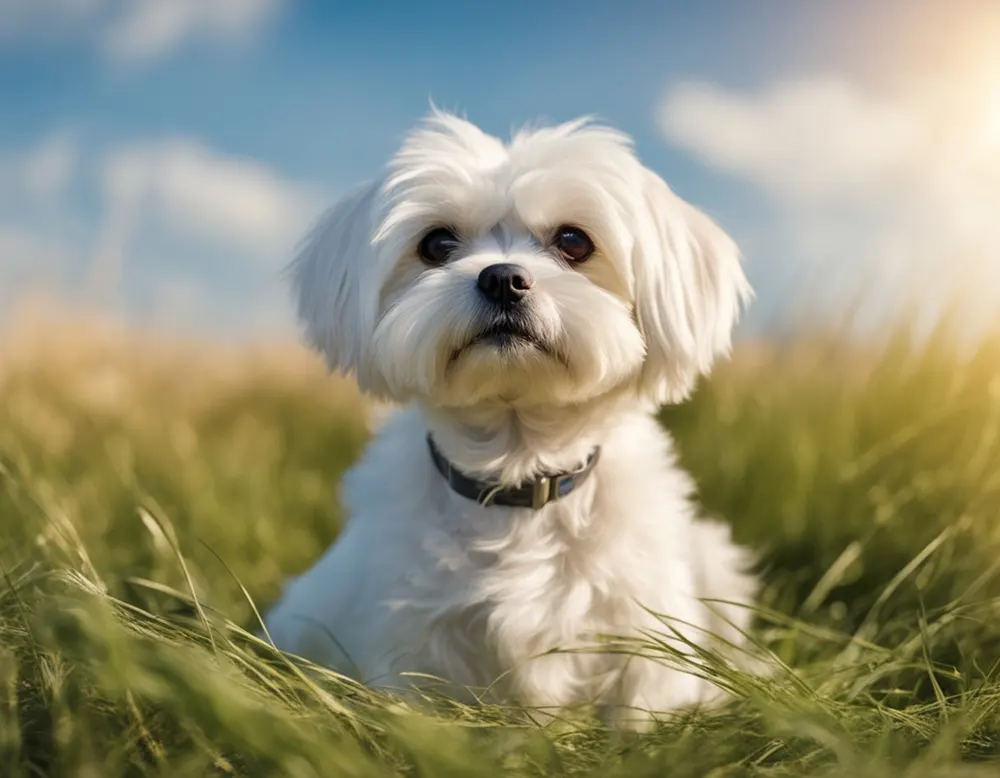
The Maltese, a delightful and affectionate breed, is an excellent choice for seniors seeking a loyal and gentle companion. This small-sized breed typically weighs between 4 to 7 pounds and stands around 8 to 10 inches tall at the shoulder. With their elegant appearance and flowing white coat, Maltese exude charm and sophistication, making them wonderful companions for seniors looking for a devoted pet.
In terms of health predispositions, Maltese are generally a healthy breed, but like all dogs, they may be prone to certain health issues such as dental problems, luxating patellas, and collapsed tracheas. Regular veterinary check-ups and proper dental care can help mitigate these concerns and ensure the Maltese maintains optimal health throughout its life.
Maltese have a long, silky coat that requires daily grooming to prevent matting and tangles. While they do shed minimally, their coat maintenance is relatively high compared to other breeds, requiring regular brushing and grooming sessions to keep their coat in good condition.
Known for their moderate noise levels, Maltese are suitable for apartment living or homes where noise needs to be kept to a minimum. They are generally quiet indoors but may bark to alert their owners of any potential intruders or unfamiliar sounds.
In terms of obedience, Maltese are intelligent and eager to please, making them relatively easy to train with positive reinforcement methods. They enjoy learning new tricks and participating in training sessions with their owners.
Exercise requirements for Maltese are low, requiring daily walks and occasional play sessions to keep them mentally and physically stimulated. They enjoy activities such as walking, playing indoors, and exploring their surroundings, making them suitable companions for seniors who prefer a more relaxed lifestyle.
In summary, the Maltese is a friendly and affectionate breed with minimal shedding, moderate noise levels, and low exercise needs, making them well-suited for seniors seeking a loyal and gentle companion. With their charming personality and elegant appearance, Maltese make wonderful companions for seniors looking for a devoted pet to share their golden years with.
Total Rating Scores of
Maltese
19
Breed Size
Health
Shedding
Coat maintenance
Quietness
Obedience
Exercise Requirements
PROS
- Portable
- Almost no shedding
CONS
- Easily stepped on due to mini size
- Daily grooming
- Sometimes vocal

